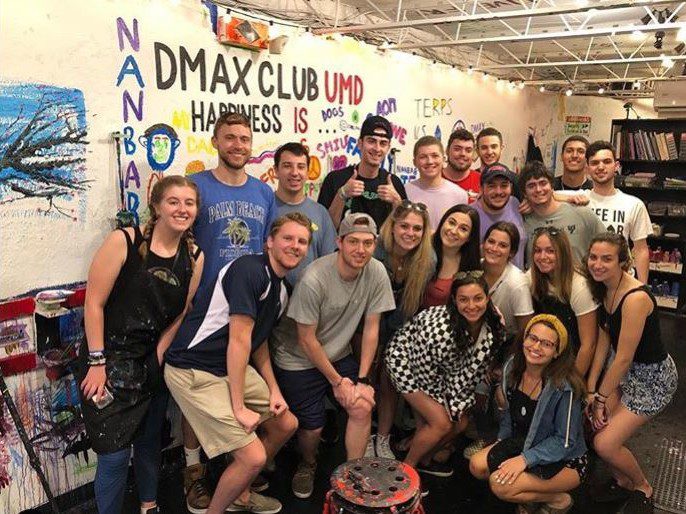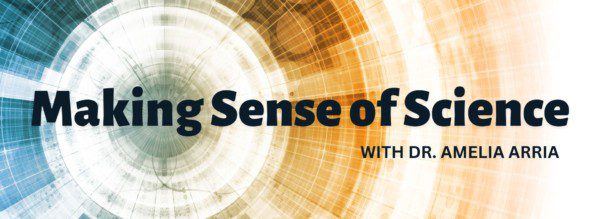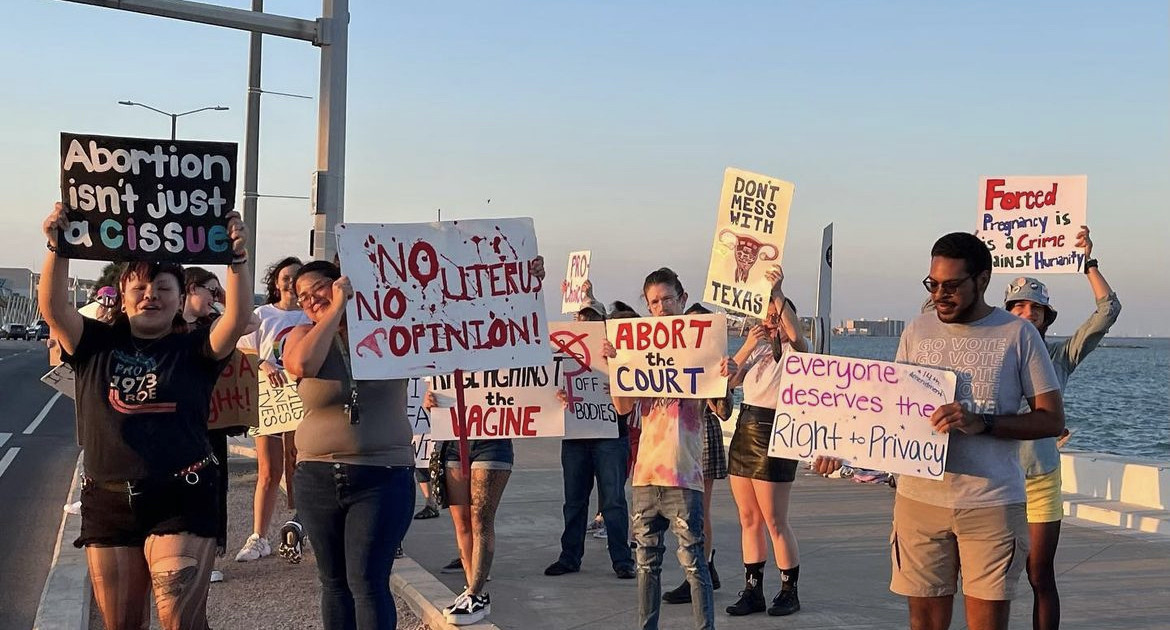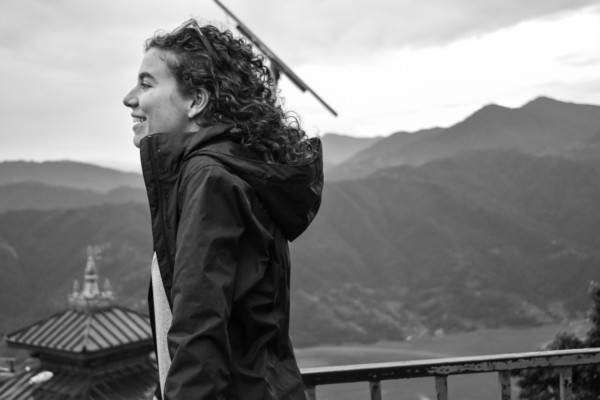When Laurie Burstein-Maxwell’s son Dan told her he felt like something was wrong, she understood why he seemed to be distancing from his friends. Before his depression, his mom said, the high school senior spent all his free time out and about in Radnor, Pennsylvania, a suburb of Philadelphia. In the year-and-a-half before he died from suicide in 2013, the 18-year-old kept to himself.
“We all tried everything to help him get better, and unfortunately nothing worked, and he finally gave up,” Burstein-Maxwell said. “He felt like an alien, like he was the only one that could possibly feel the way he did and that no one could understand him.”
When 23-year-old Drew Pelusi’s anxiety peaked during the pandemic, he sought non-prescription Xanax, not anticipating it would be laced with fentanyl. From then, the Boston University graduate student, just two credits shy of his master’s degree in computer science, became addicted to heroin and died of an overdose in June 2021.
Though Drew’s family encouraged him to pursue more intensive counseling, he was resistant, his dad, Jim Pelusi, said. It was only after Drew’s best friend and roommate, Alec, found heroin in their Cambridge apartment and urged Drew to get help that he acquiesced.
“He called me up and said, ‘Dad, can you come pick me up? Alec says I need to go to rehab,’” Pelusi accounted, letting out a breathy laugh that caught in the back of his throat. His voice shook. “We’ve been saying that to you for a while now, Drew.”
Although Laurie Burstein-Maxwell and Jim Pelusi lost their sons eight years apart, many of the same ‘what-ifs’ haunted them in the aftermath.
For Dan’s mom, the question was whether he might have felt less alone if it were easier for him to talk about his problems with his friends. For Drew’s dad, it was whether his son would have agreed to professional help earlier had his friends known how to ask him about his problems or intervene.
Separately, both parents made it their personal as well as professional mission to help young people like their sons take advantage of the critical mental health resource right under their noses: their friends.
“Both their programs provide a space in which young people can speak freely and collectively rather than under the administrative eye of a formal counselor, trained peer or otherwise.”
In 2013, Burstein-Maxwell and her husband Lee Maxwell founded the DMAX Foundation, named for their son’s lacrosse nickname, to establish clubs on college campuses that bring students together to talk about their lives, including but not limited to mental health challenges.
Then, this year, Pelusi started working with Sudhakar Kaushik, a product developer and founder of the health tech company Jeeva, to create an app, Friends for Life (FFL), that helps young people with mental health concerns connect, share stories, and access resources for themselves and their friends.
In recent years, more colleges have started offering peer mental health support services for a variety of reasons, one being the need to accommodate many students’ preferences to speak to someone more like themselves than a professional counselor. Traditional peer support, however, is defined as discussing your mental health with a trained peer, not a friend.
Dan and Drew’s families decided to stray from tradition. Both their programs provide a space in which young people can speak freely and collectively rather than under the administrative eye of a formal counselor, trained peer or otherwise.
While DMAX clubs have designated student leaders, they know their role is to model open sharing rather than serve as a paraprofessional.
“We wanted to create a place for students to get together and talk about how they’re doing, how their friends are doing, and how they can help each other,” Burstein-Maxwell said, plain and simple.
The first DMAX Club formed at Elon University, where one of Dan’s close friends collaborated with the Maxwells to get it up and running. Since then, clubs have popped up on 11 campuses in four different states.
After nine years, Burstein-Maxwell said the DMAX model is “tried and true.” The Foundation’s 2021 Impact Report revealed that 87% of student members found DMAX Clubs improved their “feelings about self” and “relationships with others,” while 100% said they would recommend DMAX to their friends.
Its emphasis on Conversations that Connect ® not only differentiates DMAX from other pre-existing mental health clubs that focus more on education and advocacy but also fills gaps in typical college counseling programs, Burstein-Maxwell said.
One of those gaps is students that want to talk to someone but don’t necessarily need that person to be a professional. Another is students that do in fact need professional help but are apprehensive to seek it out.
DMAX Clubs are not totally divorced from formal mental health services, though. For any school to have a DMAX presence, the campus counseling center needs to provide annual training for club leaders—in skills like active listening, handling emergencies, making referrals, and more—and be available to the leaders for consultation.
“Sometimes [the counseling centers] say, ‘We don’t have time for that,’” Burstein-Maxwell said. “But the truth is they don’t have the resources. But that makes it difficult because we won’t go anywhere where the counseling center won’t do those two things.”
Burstein-Maxwell added that some schools turn away DMAX services because they’re worried about being liable for mental health crises that could emerge during a club meeting.
“We’re offering to provide this resource for free to the colleges—it is something they critically need—and they’re afraid of it,” she said.
While Burstein-Maxwell acknowledges the possibility of a worst-case scenario, including suicide, she also pointed out students are nonetheless discussing their mental health behind closed doors. “It could happen in a hockey club. It could happen in a dorm room. In this case, at least the students are trained, and the students understand what they’re there for.”
Ensuring members feel comfortable supporting each other in the face of a range of unique and sensitive challenges—whether related to their gender identity, family dynamics or a serious illness—tops the agenda for DMAX’s incoming leader. After nine years at the helm, Dan’s parents are handing the reins over to Ethan Jewett, who stressed the importance of students being able to engage in “respectful and constructive” conversations.
DMAX is like Friends For Life (FFL), Jim Pelusi’s project, in that way. Both operate with the same core understanding that helping students have productive discussions about their mental health on their own can save lives, rather than endanger them.
“The thing, again, that stuck out to me was Drew was listening to his friends more than he was to us,” Pelusi said. “And so, had we been able to empower and enable his friends to take earlier action, maybe there would’ve been a different outcome.”
For the last several months, Pelusi and his partner Sudhakar Kaushik have been developing an app they hope can provide both a platform and the resources young people need to look out for each other’s wellbeing.
The app aims to help students—friends and strangers alike—keep tabs on each other’s mental health regularly, as opposed to only in the event of an emergency. Different “modules” make a variety of support systems accessible all at once and all the time.
One module is an anonymous public forum that allows young people to share experiences or post questions about mental health. Another is for “friend circles,” or private group chats, offering existing friend groups a designated space to talk to each other about how they’re doing or ask for help. In “friend circles” or on their own, users can refer to a built-in, artificially intelligent chatbot to ask questions or find resources.
While DMAX clubs offer students on the same campus the opportunity to gather in-person and speak face-to-face, the FFL app can connect students anywhere in the country via channels that are entirely online and anonymous.
Because the anonymous, virtual realm comes with its risks, FFL has hired trained moderators and adolescent psychologists to respond to science-based questions or clear up misinformation in the feed.
“We are letting the peers talk to each other really, but we are monitoring [for] when we see something—that is, bad language, toxic language, self-harm or bullying,” Kaushik said.
As FFL looks forward to the next stages of its development, the founders are mindful the tool remain student-driven. Their focus is on building a “vibrant” community, they said, which young people define and mold into what they need. And only they would know.




